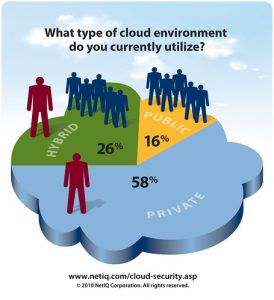The “Cloud” provides end-users with the ability to access files uploaded on the internet with any electronic device and from any location. Storing backup files and sharing data on the Cloud is secure, convenient, and fundamental to the future Sharing Economy.

image source: https://search.creativecommons.org/photos/626527d9-2d25-404f-b399-926639d4baad by ccPixs.com
Cloud storage is a remote platform that uses a highly virtualized, multi-tenant infrastructure to provide enterprises with scalable storage resources that can be provisioned dynamically as required by the organization. This service is offered by a wide array of cloud storage providers.
How does it work?
Cloud storage involves at least one data server that a user connects to via the internet. The user sends files manually or in an automated fashion over the Internet to the data server which forwards the information to multiple servers. The stored data is then accessible through a web-based interface.

image source: https://search.creativecommons.org/photos/12bb7052-68ab-4bde-b4ee-9dd2c4009cae by IN 30 MINUTES Guides
Unlike dedicated physical devices, Cloud-based storage has several unique attributes that make it attractive for enterprises attempting to compete in today’s data-intensive business environment:
- Elasticity, scalability, multi-tenancy and metered resources;
- Resources are distributed to enable dynamic elasticity and availability;
- Resources are replicated for disaster recovery and fault tolerance;
- Data replication is eventually consistent to ensure availability.
Types of Cloud Storage
Personal cloud storage
Personal cloud storage is enabled by a network-attached device that allows users to store different types of personal data. The user owns and controls the device, and can access it from anywhere via the Internet.
Private cloud storage
Private cloud storage uses on-premises storage servers that are under the control of the company that owns them. Private clouds tend to be used by organizations that want the flexibility and scalability of cloud storage.
Public cloud storage
Public cloud storage is available from a third party as a service. Amazon, Microsoft and Google Cloud Storage are the most popular enterprises. The infrastructure is built, owned, managed and maintained by the third party.
Hybrid cloud storage
Hybrid cloud storage is some combination of public cloud, private cloud and data centre as an organization prefers. It combines resources that are owned and managed by the enterprise with public cloud storage services.

image source: https://search.creativecommons.org/photos/4d84dad7-b043-4dd1-8a8b-effcbd9bd469 by NetIQ’s Flickr
info source: https://en.wikipedia.org/wiki/Cloud_storage
